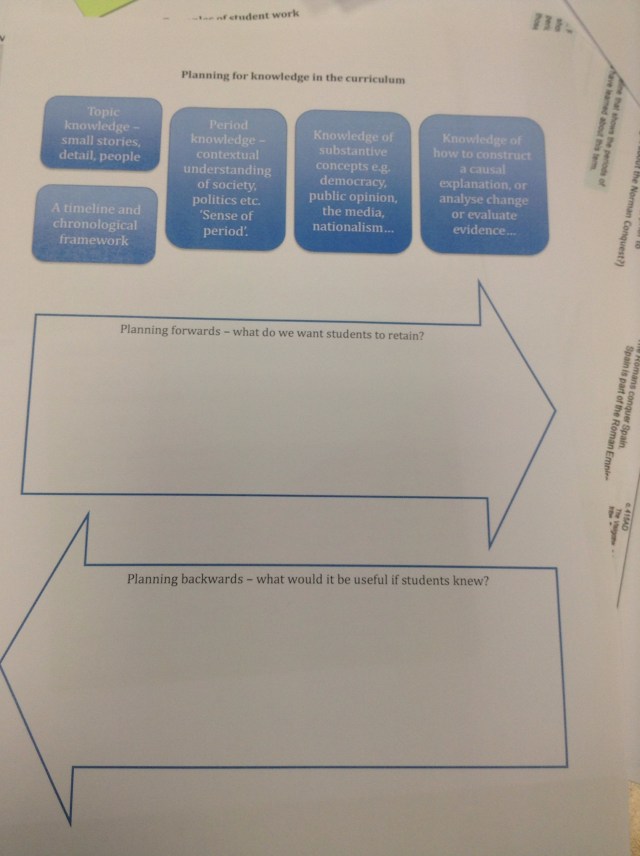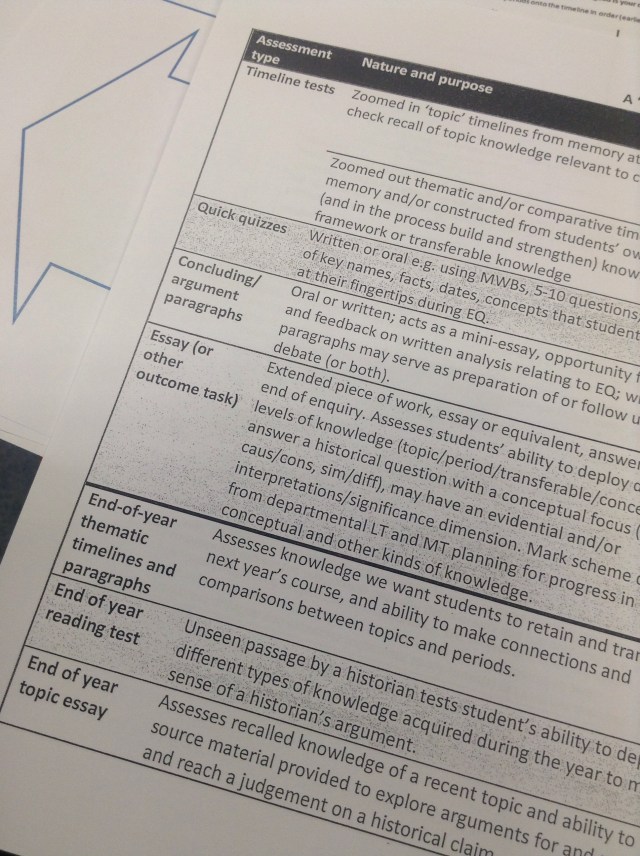Carr is talking about the relationship between knowledge, progress and assessment in History.
She shares the department’s discussion on models of progression. The departmental vision: inspired by the past, learning by enquiry, winning the arguments. They have been reflecting on the role of knowledge: what do the students need to know, and why? Working memory and cognitive load. Whether second order concepts are a type of knowledge we draw on. What frameworks do history teachers have in their heads that students don’t? (This chimes in with a bit of recent reading I’ve been doing with threshold concepts).
We read a section of Paxman’s book on WW1 and consider what knowledge you need to understand it – government structures, geographical knowledge etc. We do the same with a Schama extract and consider how sense of period knowledge applies here.
We then look at some (excellent) student work and consider what wider knowledge students have needed to write these people – one has been able to make links between the British Empire and other empires she has studied, while a year 7 student has used some very detailed knowledge of Anglo-Saxon slavery and the finer points of feudalism to show change over time in Norman Britain. In our table discussion, Neal says that using historiography has forced students to look more closely at the evidence, to judge interpretations.
We think of our own enquiries and what knowledge is needed. Ericha shares details of her “Roosevelt: dictator?” scheme and we list the things students need to know to be successful. Then this activity –
Carr then explains how they have tried to build more knowledge retention into their work – timelines, quizzes, overview and themes, revising and revisiting topics, themes, concepts etc. This is partly informed by neuroscience and books such as Make It Stick.
We look at some examples of timelines in helping students to fit together all the chronological knowledge they are acquiring. My favourite is for y8 starting a unit on Islamic Spain – they are given a timeline with key events from that study on it, and asked to add contemporary events from Britain.
Carr says that the thinking continued – if knowledge is that important, how can we assess it? They’re aiming for a mixed constitution – assessing overall performance by taking a range of samples of what students know and can do.
These are backed up with extremely detailed mark schemes for the assessed pieces of work. They help to define the gold standard for very specific tasks, in a very task-specific way. We look at some examples of end of year tests and responses to them to wrap up a very thought-provoking session.


